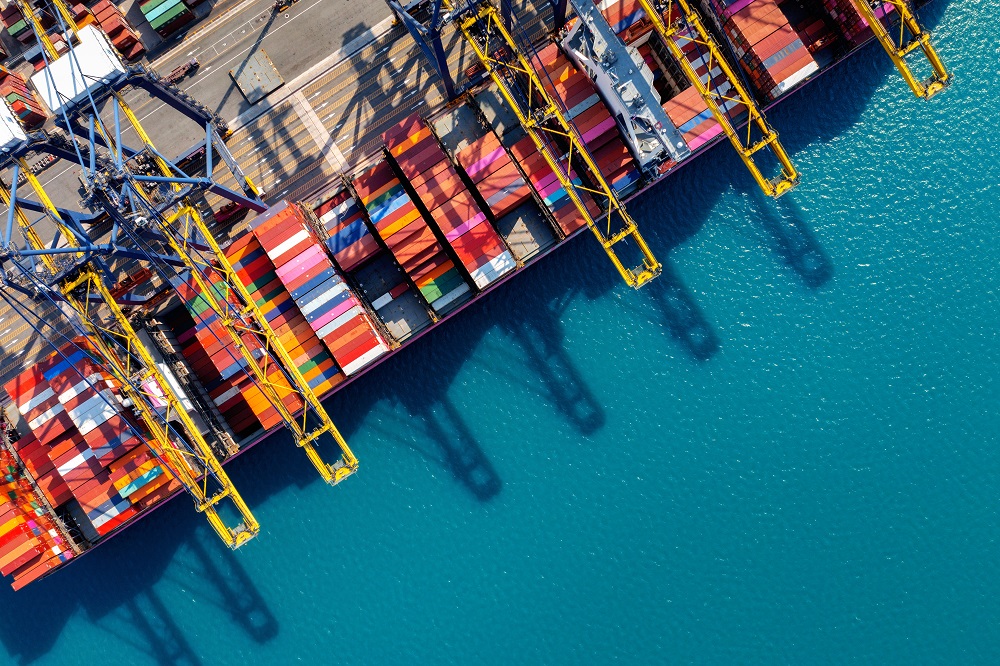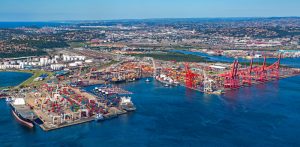 In a globalised economy, inflation no longer has any borders, points out Professor Mustapha El Khayat, Professor Emeritus, President of AMLOG, Université Hassan II Mohammedia, and AMLOG, France, Vice president of FAAL, as well as the author of several transport logistics publications. In this article he makes the case for the cost of maritime transport (MTC) being a significant factor in the transmission of inflation from developed to developing countries.
In a globalised economy, inflation no longer has any borders, points out Professor Mustapha El Khayat, Professor Emeritus, President of AMLOG, Université Hassan II Mohammedia, and AMLOG, France, Vice president of FAAL, as well as the author of several transport logistics publications. In this article he makes the case for the cost of maritime transport (MTC) being a significant factor in the transmission of inflation from developed to developing countries.
The sharp rise in container freight rates and bulk shipping prices in recent times raises the question of the transmission of inflation through the cost of maritime transport (MTC) to developing countries which are the most exposed to the effects of international inflation. These countries are dependent on developed countries for imports (industrial goods, agri-food, sanitary products, etc.), exports (raw materials, etc.) and the services needed for trade, i.e. transport, insurance and logistics. It is difficult for developing countries to reduce their imports when prices are rising. Thus, imported inflation is inevitable.
Inflation in developed countries is often structural and closely linked to the complexity of globalised production and financial systems. It is driven by costs, by the international monetary system, by demand and by speculative games on (futures) markets. The causes of international inflation are essentially institutional and structural: concentration of capital, conflicts between capital and labour, etc. These factors, or rather production relationships, result in a lack of downward price elasticity of factors of production and products. It has been the case that prices rise in the upward phase but fall little or not at all in the downward phase of the business cycle. Similarly, sectoral inequalities contribute to generalised inflation, which is due to multiple causes that are complex to identify.
The transmission of inflation is therefore structurally easy between developed and developing countries. The centres of emergence of inflation are transnational, emitting increases with an accelerated multiplier effect that can contaminate developing countries. The most visible inflation is inflation through monetary costs. Therefore, would the cost of maritime transport (MTC) be an accelerator of the transmission of inflation to developing countries?
Let us assume that inflation is transmitted without transport costs, i.e. the cost of maritime transport is equal to zero: MTC=0 from inflation-sending subsystem A to inflation-receiving subsystem B. The question is, if the maritime transport Cost (MTC) is greater than zero, will inflation be transmitted quickly or slowly from subsystem A to subsystem B? Will it be amplified or dampened or have no effect on subsystem B?
If we reason with a fixed exchange rate, the mechanical transmission is automatically reflected in the pass-through of the maritime transport cost (MTC) on the price of the product concerned. However, the extent of the price increase (impact on prices and quantities) depends on the nature of the products. For us, the transmission of inflation through the MTC means who will bear the price increase through the MTC ? In a mechanical framework, the impact of the MTC depends on the cost (price) elasticities of supply and demand for the product
Thus, the products imported by developing countries in subsystem B are often products that are not structurally produced locally, or imported in small quantities or components of complex industrial products with oligopolistic markets. These imports are very sensitive to cost-price variations that are determined by the industrial groups that control the markets (oligopolistic or monopolistic structures). As the demand for these types of products is relatively rigid, the seller of subsystem A is in a position to transfer the MTC and upward cost variations to the buyer of subsystem B.
Let us take the case of capital goods essential to the development of countries in subsystem B. And let us assume that these capital goods are produced exclusively in subsystem A. Let us also assume that exchange rates are fixed and that maritime transport is monopolised by mega carriers who impose freight rates. Assume that these freight rates are very sensitive in the long run to rising costs and rigid in the short run. The MTC becomes inflationary in subsystem B.
The rise in MTC, together with the rise in product prices in advanced countries, only amplifies inflation in developing countries. All current data confirm that the MTC is continuously rising. Due to the structural fact of supply and demand elasticities, developing countries are victims of this international inflationary phenomenon. The elasticity of demand in developing countries for products imported mainly from developed countries is relatively rigid. Any increase in MTC and imported products is transmitted through the economic circuits of these subsystem B countries and results in a real drain on their economic surplus.
Consider the effect of the MTC on developing countries’ exports of mainly primary products or easily substituted consumer goods. Any increase in the MTC is not transmitted to developed countries importing these products. This non-transferability of the MTC increase from developing to developed countries is due to the fact that product prices are determined in world markets and that the elasticity of supply is low in the short run and the elasticity for each primary product from the same country is generally high, unless that country is the only source of supply and there are no substitutes. Primary commodity exporting developing countries bear the majority of the MTC, all else being equal, an increase in the MTC is offset by a decrease in primary commodity prices (a decrease in FOB export revenues). Based on this observation, we can conclude that the MTC is a factor in the transmission of inflation from developed to developing countries and a shock absorber or even a “neutralising effect” on the transmission of inflation from developing to developed countries.
This very brief essay opens up the field of research on the impact of the Global Logistic Cost (GLC) on exports and imports of developing countries. This field of research deserves special attention in an uncertain world of rising international logistics costs.
Translated with www.DeepL.com/Translator (free version)
By Professor Mustapha El Khayat
























